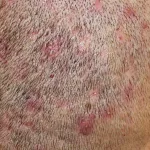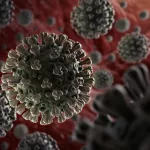Honey packs are marketed as supplements that boost sexual performance, but these claims are misleading. They are not overseen by the FDA and can cause significant adverse effects if ingested.
These unregulated products, often promoted as sexual enhancers, have surged in popularity, particularly among college-aged individuals.
Although they may appear innocuous, investigations have revealed that honey packs can include ingredients absent from the product label, potentially resulting in dangerous health consequences.
What is a honey pack?
A honey pack is a supplement typically found in liquid form, sold in small tear-open plastic sachets intended to be drunk. True to the name, it often contains honey along with assorted herbs. This product has become a viral item on the internet and is widely used by students on campuses.
Manufacturers claim the product serves as a sexual stimulant by boosting libido. However, there is no solid evidence supporting those assertions.
Some formulations may also contain undisclosed pharmaceuticals and chemical agents not listed on the packaging. In fact, testing has shown certain honey packs include erectile dysfunction medications that normally require a prescription.
The FDA has issued warnings advising against the use of these supplements because of the potential for severe side effects and dangerous drug interactions.

What are the risks of taking honey packs?
Honey packs frequently contain hidden chemicals and prescription-only medications that should be used under a clinician’s supervision.
Using these products can lead to inadvertent consumption of substances that interact poorly with other treatments you may be on.
In laboratory testing, the FDA found that a honey pack sold across several websites contained sildenafil, the active component in the prescription medicine Viagra, which treats erectile dysfunction.
Sildenafil can adversely interact with nitrates, a class of drugs commonly prescribed for conditions such as:
- diabetes
- high blood pressure
- high cholesterol
- heart disease
If you are using nitrates and also ingest a honey pack that contains an erectile dysfunction medication like sildenafil, you may face serious consequences, including a dangerous fall in blood pressure.
The FDA cautions consumers to be wary of products advertised as natural sexual enhancers, weight-loss aids, or bodybuilding supplements because they may contain undisclosed active drugs.
Risk of allergic reaction
Unknown ingredients can also trigger allergic reactions. Signs of an allergic response include:
- hives
- itchy skin
- rash
- swelling of the hands or feet
- facial swelling
- vomiting
- anaphylaxis
When to speak with a doctor
Get medical attention if you have taken a honey pack and are showing signs of an allergic reaction, or if you use nitrates and notice your blood pressure has fallen dramatically.
It’s crucial to tell your clinician exactly what you consumed so they can determine the cause of your symptoms. That information helps them choose the right treatment and avoid therapies that could interact with other substances that remain in your body.
Frequently asked questions
What is a honey pack?
A honey pack is an unregulated supplement promoted as a sexual enhancement aid. It usually contains natural components like honey and herbs, and sometimes undisclosed sexual enhancement drugs such as Viagra, which are not listed on the label.
Using honey packs can be hazardous and may lead to serious health problems.
What does taking a honey packet mean?
The phrase “taking a honey packet” refers to an online trend where individuals consume a sexual enhancement supplement sold in sachet form.
Takeaway
Honey packs are supplements falsely promoted to improve sexual performance. They are not FDA-regulated and often include hidden prescription drugs.
Ingesting these products can cause dangerous interactions with other medications you may be taking and may provoke allergic reactions.
The FDA advises against using these supplements because of the risk of severe adverse effects.
























Leave a Reply
You must be logged in to post a comment.